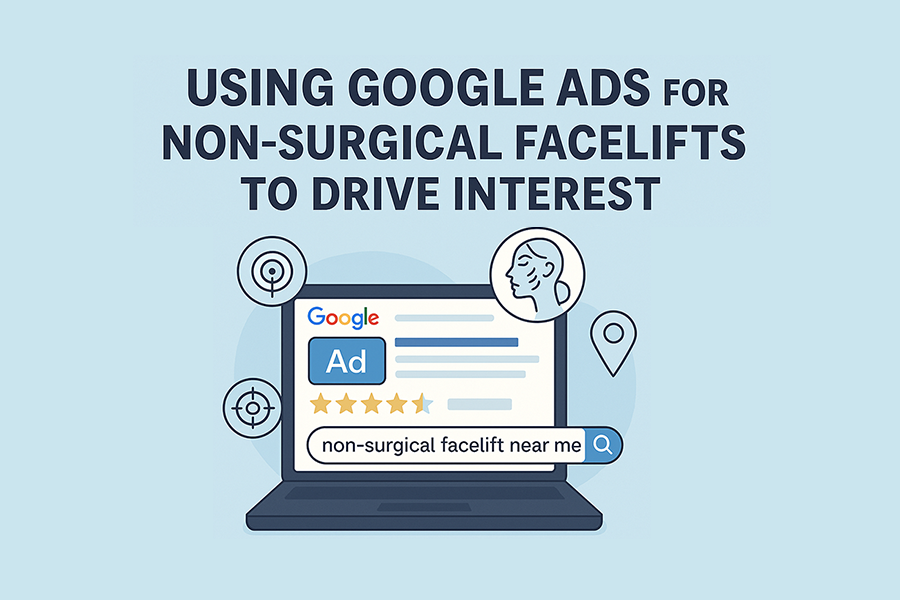
Establishing a strong online presence is vital for healthcare providers and organizations in the rapidly evolving healthcare industry. With the expertise of Lead to Conversion, a premier healthcare SEO agency and content marketing firm, this guide explores the best practices for healthcare content marketing and SEO to help your practice improve search engine rankings, engage potential patients, and drive organic traffic.
Understanding the Role of Healthcare Content Marketing and SEO
Healthcare content marketing and search engine optimization (SEO) go hand-in-hand to create a powerful healthcare content strategy. SEO for healthcare ensures your healthcare websites are visible in search engine results, while a healthcare content marketing strategy delivers quality website content that meets the needs of your target audience.
Best Practices for Healthcare Content Marketing and SEO
To stay competitive and relevant in the healthcare industry, healthcare providers and organizations need to adopt effective healthcare content marketing strategies and solid SEO tactics. Below is an expanded discussion of best practices to help you elevate your online presence and connect with potential patients.
1. Identify and Understand Your Target Audience
Understanding your audience is the cornerstone of any healthcare content marketing strategy. Healthcare marketers should focus on creating detailed patient personas that reflect the demographics, health concerns, and preferences of their target audience.
- Analyze Search Intent: Dive deeper into what potential patients are searching for and why. For instance, are they looking for information about symptoms, seeking treatment options, or trying to find a trusted healthcare provider? Matching content to search intent ensures your website becomes a go-to resource.
- Personalization Matters: Incorporate personalized and fresh content into your strategy. For example, a pediatric practice might create blogs that address common concerns for new parents, while a cardiologist could offer tips on heart-healthy living. Personalized, relevant, and helpful content fosters trust and engagement.
2. Develop a Solid SEO Strategy
A solid healthcare SEO strategy is crucial for improving your search engine rankings and driving organic traffic to your healthcare websites. Key components include:
Keyword Research
Keyword research is the foundation of healthcare SEO. Focus on identifying healthcare SEO keywords that potential patients use to search for medical services or information. Use tools like Google Keyword Planner or SEMrush to find relevant keywords with a balance of search volume and competitiveness.
Avoid Keyword Stuffing
While including keywords is essential, overloading your content with them—known as keyword stuffing—can negatively affect your search engine rankings. Aim for natural integration of keywords into your web page’s content, meta descriptions, and headers. Search engine algorithms prioritize readability and value for users.
On-Page SEO Optimization
Optimize each page of your website by:
- Crafting concise and descriptive meta descriptions that include relevant keywords.
- Using headers (H1, H2, etc.) to break up content and improve readability.
- Enhancing user experience through fast-loading pages and mobile optimization also positively influences search engine crawlers and helps you gain search engine rankings.

3. Create a Powerful Healthcare Content Strategy
Your medical content marketing strategy and healthcare SEO efforts should focus on producing high-quality, engaging and useful content that meets the needs of both patients and search engines.
Informational Content
Healthcare content marketers should prioritize educational blogs, how-to guides, and FAQs that address common patient concerns. This type of content not only improves search engine rankings but also positions your organization as a trusted authority.
Personalized Content
Use storytelling and patient success stories to humanize your brand. Personalized content that addresses specific health concerns resonates more deeply with your audience, fostering connection and trust.
Engaging Formats
Diversify your content formats to include videos, infographics, and interactive tools like symptom checkers. These formats are particularly effective at grabbing attention and keeping users engaged on your website.
4. Optimize for Local SEO
Local SEO is indispensable for healthcare providers looking to attract nearby patients. A healthcare local SEO strategy ensures that your practice appears prominently in local search results.
- Update Your Google Business Profile: Ensure your Google Business Profile is complete and accurate, including your practice’s address, phone number, services, and office hours.
- Encourage Patient Reviews: Positive reviews build trust and enhance your local SEO rankings. Prompt satisfied patients to leave reviews and respond professionally to any feedback.
- Target Local Keywords: Incorporate location-based keywords (e.g., “pediatrician in Chicago”) to enhance visibility in local search results and attract nearby potential patients.
5. Leverage Tools and Analytics
Regularly monitoring your SEO efforts ensures continuous improvement. Tools like Google Search Console and other analytics platforms provide valuable insights into your website’s performance.
- Analyze Search Engine Algorithms: Stay updated on changes to search engine algorithms to adjust your strategies proactively.
- Monitor Organic Traffic Patterns: Identify which pages drive the most traffic and why.
- Refine Your Strategy: Use data to optimize content, improve keywords, and address gaps in your healthcare content marketing strategy.
6. Ensure Mobile Optimization
A mobile-friendly website is essential in today’s mobile-first world. Search engines prioritize websites that are mobile-optimized, ensuring they load quickly and display correctly on all devices.
- Enhance User Experience: Simplify navigation and ensure forms, contact options, and content are accessible on mobile devices.
- Boost Search Engine Rankings: Mobile optimization directly impacts how search engine crawlers evaluate your site, improving organic search results.
7. Stay Compliant with Healthcare Regulations
Healthcare marketing comes with a unique set of compliance requirements to protect patient privacy and adhere to industry standards.
- Adhere to HIPAA Guidelines: Ensure all content respects patient confidentiality and avoids sharing identifiable health information.
- Secure Data Practices: Use secure platforms to collect and store patient data, and clearly communicate your privacy policies to users.
By creating compliant, high-quality healthcare content that is optimized for search engines, healthcare organizations can build credibility and attract the right audience.
Adopting these best practices will position your practice to thrive in an increasingly competitive digital space, attracting more potential patients and fostering long-term engagement.
Why Lead to Conversion is Your Partner in Success
As a leading healthcare SEO agency and content marketing firm, Lead to Conversion has a proven track record of helping healthcare providers optimize their websites for search engines and create engaging healthcare content. We specialize in crafting personalized, quality content that includes relevant keywords, aligns with SEO best practices, and meets the needs of both search engine crawlers and potential patients.
Elevate Your Healthcare Marketing with Proven SEO and Content Strategies
A powerful healthcare content marketing strategy and solid SEO strategy are indispensable for success in today’s digital-first world. By implementing these best practices for healthcare content marketing and SEO, leveraging tools like Google Search Console, and staying focused on patient needs, healthcare providers can achieve higher search engine rankings, attract organic traffic, and engage their audience effectively.
Incorporating organic SEO services into your content plan ensures your valuable healthcare content actually reaches the patients who need it most via search.
Partner with Lead to Conversion today to enhance your healthcare marketing efforts and achieve your online goals. Together, we’ll turn your website into a trusted resource for patients while optimizing it to outperform your competitors.




